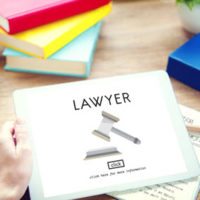Reporting Differential Damage

Used car dealers are not required to disclose all of the damage sustained by a vehicle before selling it to a consumer, unless the buyer specifically asks. However, there are a few exceptions to this rule, which are contained in the Automotive Industry Trade Practices law and require dealers to disclose certain types of damage, including damage to a vehicle’s differential. Dealers who sell vehicles with this kind of damage without telling the buyer can be held accountable by consumers, who if successful, could be eligible to collect a refund for their vehicle, as well as associated expenses. Unfortunately, filing a claim can be difficult, especially against large corporate dealers, so if you discovered undisclosed damage to a recently purchased vehicle, it is important to contact a used car fraud attorney who is well-versed in state law and can help you seek compensation for your losses.
The Purpose of Differentials
All vehicles are equipped with differentials, which help distribute power from a car’s transmission to its wheels, while also allowing the wheels to rotate at different speeds. The latter purpose is extremely important because when a vehicle turns a corner, the wheel on the outside must turn faster than the inside wheel in order to cover a greater distance in the same amount of time. It is because the wheels do not turn at the same speed that a differential is necessary.
Differentials are placed halfway between the driving wheels on a vehicle, which, depending on whether the car is a front, rear, or four wheel drive, could be located on the front, rear, or on both axles. The differential contains a number of components, including gears, which generate a significant amount of heat and are prone to wear and tear over time. Because differentials are so crucial to the proper functioning of a vehicle, Pennsylvania law requires dealerships to disclose when a vehicle’s differential is damaged, defective, or deteriorated to such a degree that it must be replaced.
Signs of Differential Damage
Although differential damage doesn’t always manifest right away, it will eventually reveal itself, usually by making a whining or clunking noise, even when coasting. Differential damage is often the result of a lack of maintenance and a failure to fill the differential with oil, so just because a car was not in an accident, does not mean that it is free of differential-related problems. For this reason, consumers are encouraged to keep an eye out for this type of noise while driving, as well as howling, whirring, banging, crunching, clicking, popping, or rumbling sounds, all of which can indicate loose or worn pinions and gears inside the differential.
Call Today for a Free Consultation
If you recently purchased a used vehicle from a dealer in Pennsylvania and then discovered that it had a damaged differential, you may be eligible for compensation. Please contact Louis S. Schwartz at CONSUMERLAWPA.com or by calling 215-790-1800 to discuss your case and learn more about your legal rights and options.
Resource:
web.mit.edu/2.972/www/reports/differential/differential.html


